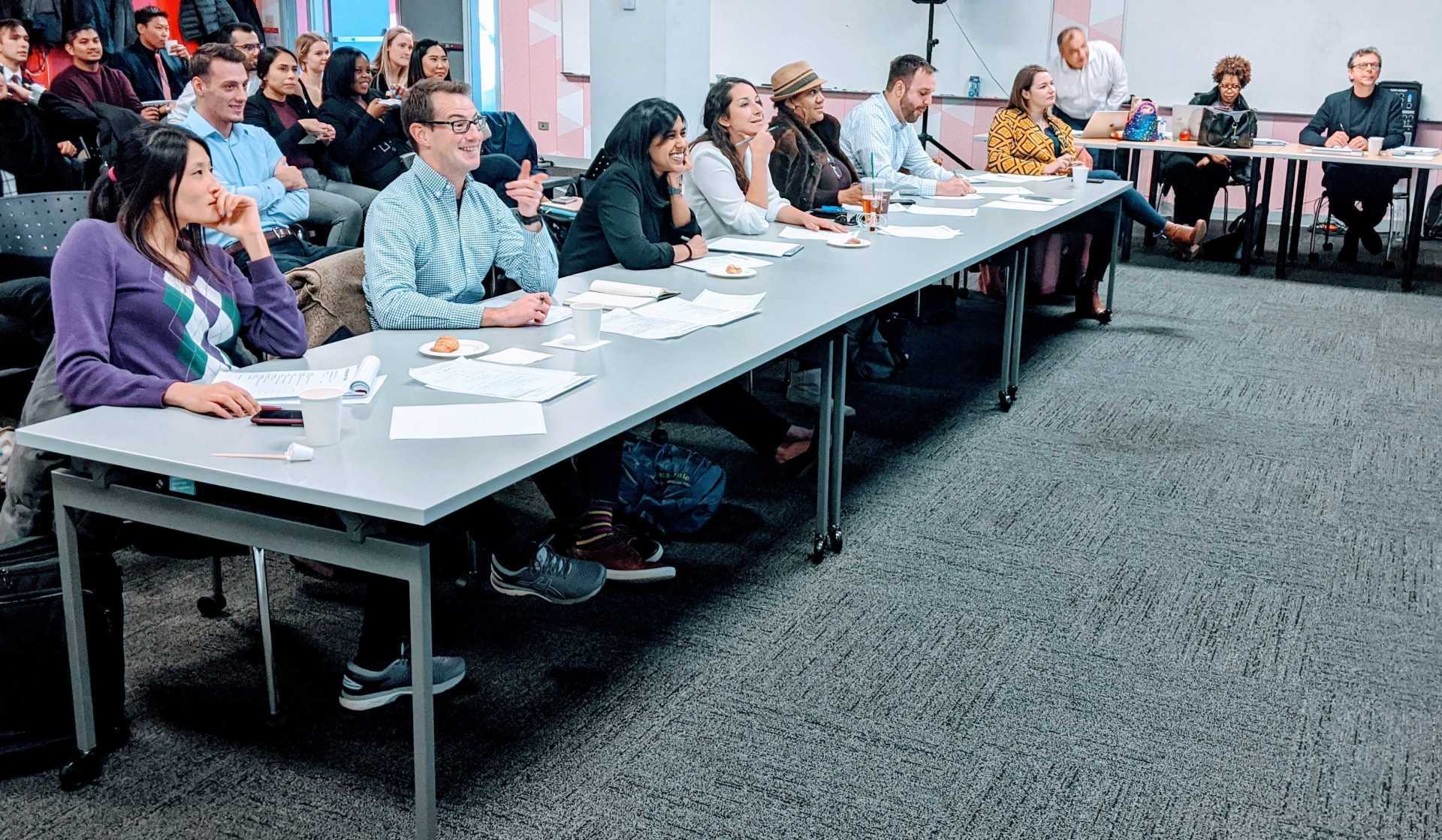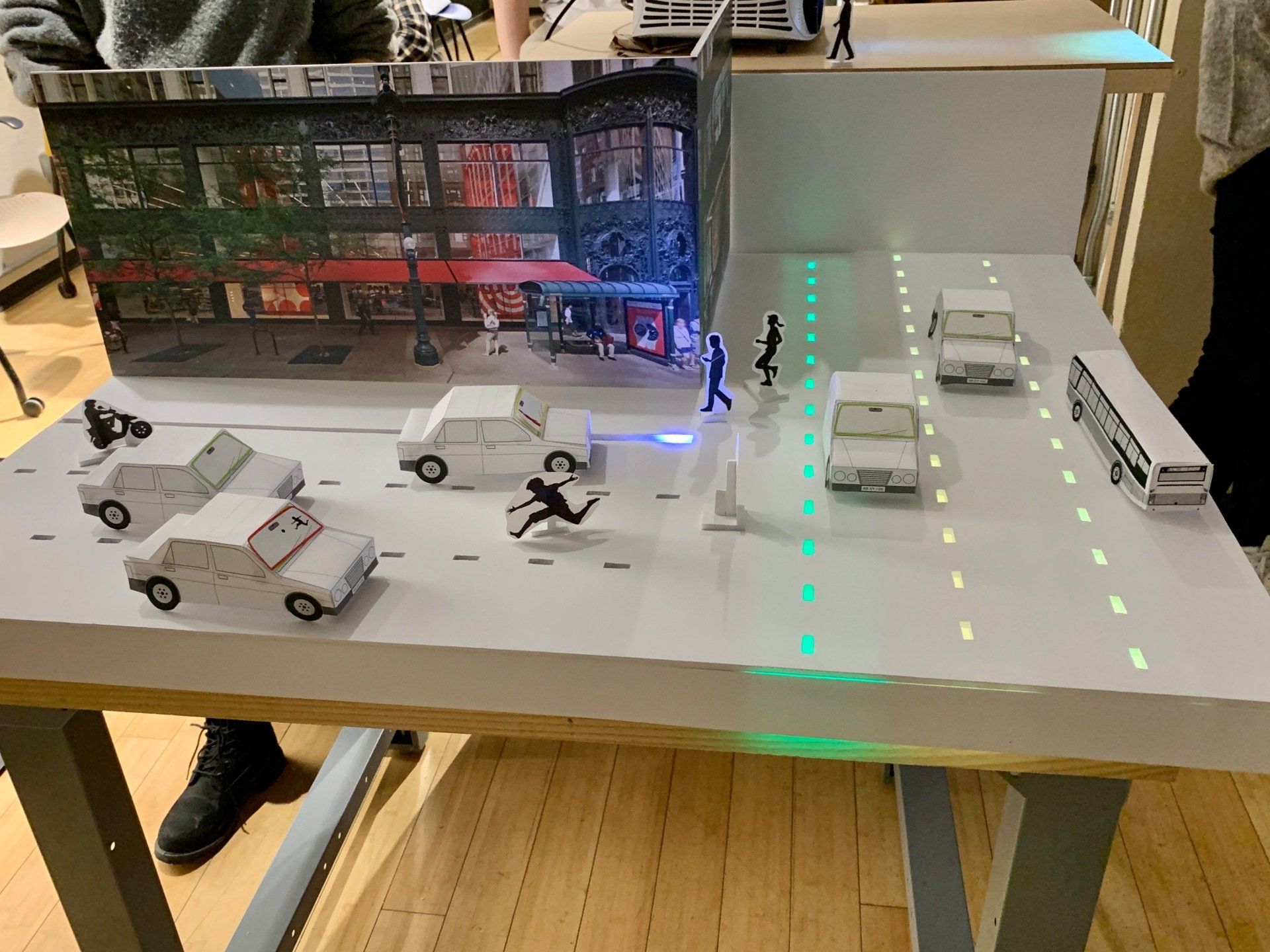Even Accelerators Need Acceleration: How University Partnerships Boost City Tech's Solution Development Pipeline
Elucidating and Advancing Results
City Tech accelerates technology-enabled solutions to make cities happier, healthier and more productive. We cannot accomplish this mission without thoughtfully engaging multiple cross sector partners to collaboratively develop these new solutions. Often those partners are corporations, governments, and philanthropic organizations – but equally important are academic institutions who bring research-driven insight to address complex challenges.
Our work is both innovative and rooted in process; most of our initiatives and solutions start with an opportunity discovery phase during which we work on scoping the opportunity, researching the technology, and understanding the value proposition.
True to our mission as an urban solution accelerator, our process helps to rapidly elucidate and advance results by working with experts to better understand the problem, piece together an answer, and test the solution through a unique piloting process. Our process acceleration allows our solution team to quickly find success and work on scaling and/or bringing the solution to market; it can also lead to fast failure and quick pivots, saving valuable stumbling time.
Balancing Tradition and Innovation
While they have not historically embraced this identity, academic institutions also accelerate discovery. Universities are both based in research and evidence, and they are the engines of innovation. They are in the perfect position to play the accelerator role, and many have recently developed programs to ensure that the research and thought leadership coming out of all academic levels can be tested, applied, and scaled, either within the university itself or through partnerships with other organizations. These collaborations can ensure that the best of university structure and process feed directly into outcomes and metrics of solutions assembly and scale.
Current University Partnerships
It is in this spirit of compounding acceleration and momentum along the solution development pipeline that City Tech has developed unique partnerships with universities to work with us on our initial opportunity discovery phase. Over the past year, we have worked with two universities to continue making research-driven decisions at the onset of our initiative and solution development process.
The University of Chicago (UIC) Innovation Center
works to apply their practice and methods within corporate-funded interdisciplinary classes. Students within the program develop innovative solutions to complex problems guided by faculty from multiple disciplines and design thinking methodologies. Along with Bosch, Microsoft, and HERE Technologies, City Tech is working with a multidisciplinary undergraduate class within the center to conduct primary and secondary research and develop prototypes exploring how technology can help users prioritize high capacity efficiency modes as a part of customer journeys across mobility systems ( link
to press release). The outputs from the year-long program will be assessed and, if they align, can be used as a starting point for City Tech pilots.
The year-long class wrapped up their first semester in December 2019. Students presented 20 concepts that ranged from software-based technology to gamify the public transit journey and provide better and more predictive wayfinding tools, to sensors and hardware to help increase efficiency and create a smoother customer experience. Students will spend the spring semester narrowing and prototyping select ideas. These prototypes will then be reviewed by City Tech and partners, and, if there is alignment, be the basis of future City Tech solution cycles.
In a program led by Notre Dame and Bosch, City Tech also worked with Notre Dame’s Student International Business Council
to dive deeper into the background around our upcoming Connected Construction Initiative. Students from this program explored the friction between the construction site and the surrounding area and shared their research findings and proposed interventions. City Tech will use this information as a base to narrow focus areas as we are developing the initiative.
City Tech has also partnered with Bosch’s M3 university program to align City Tech’s Advanced Mobility Initiative Roadmap
( link
to press release and roadmap) with the class’s challenge prompts, resulting in concepts around how technology could change the urban cityscape; the students will have the opportunity to present these concepts to a broader audience at SXSW, and City Tech will work with Bosch on how to best feed them into City Tech’s process.
These university partnerships have enabled City Tech to utilize the unique capabilities of these academic institutions, while also providing exposure and real-world experience for the students. City Tech and both universities gain key insights and efficiencies from our partnerships, and we hope to continue finding such opportunities for future initiative and solution development cycles.
About the Author:
Meera Raja is the Solution Design and Program Development Manager at City Tech Collaborative. In this role, Meera works as a member of the City Solutions team to design and execute new programs and services. Meera also leads City Tech's 2,000-member Civic User Testing Group (CUTgroup) in Chicago and coordinates expansion of the CUTgroup model to additional cities across North America. Prior to joining the City Tech team, Meera was the Associate Director of Research Innovation at University of Chicago, where she developed strategies to advance nascent and complex research. Meera was previously a consultant for ZS Associates, working on data-driven solutions for the pharmaceutical space. Meera completed her Ph.D. and Postdoc in Chemistry from Northwestern University and received her undergraduate degree in the same field from the University of Illinois in Urbana-Champaign.

